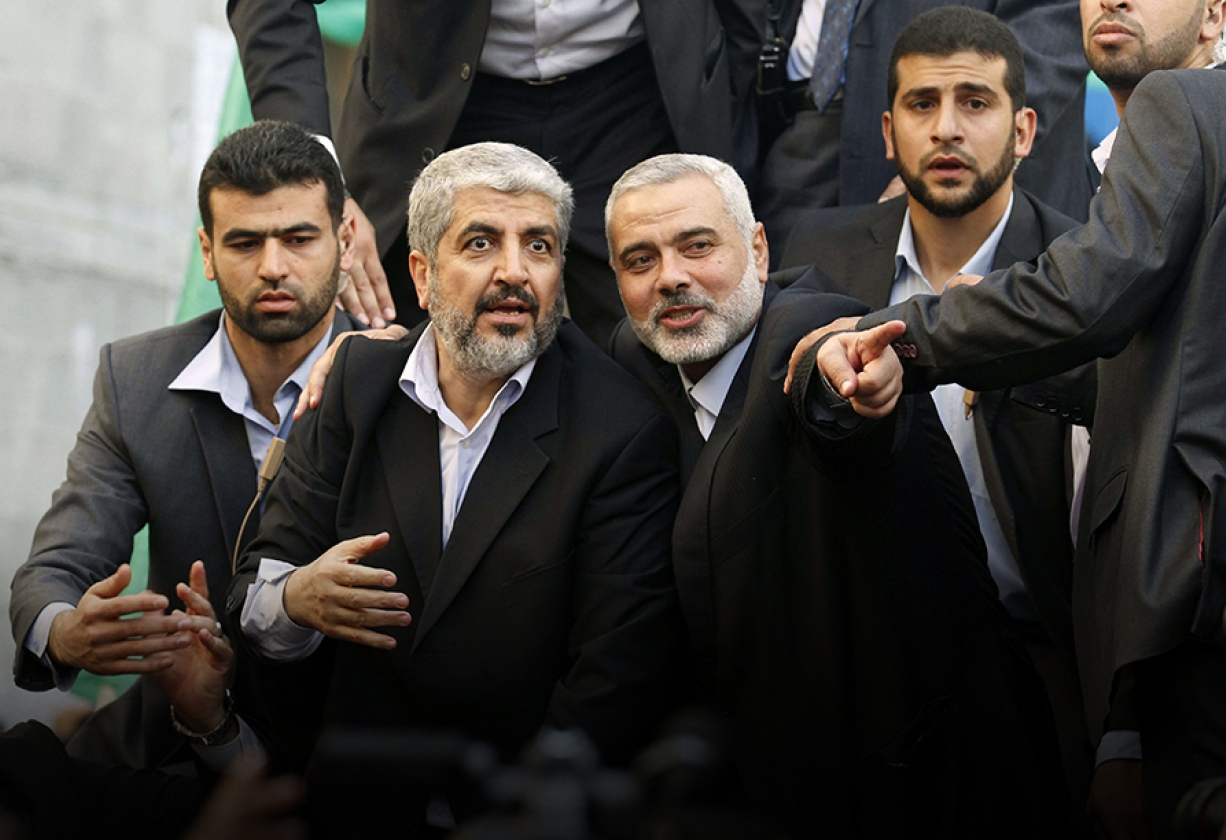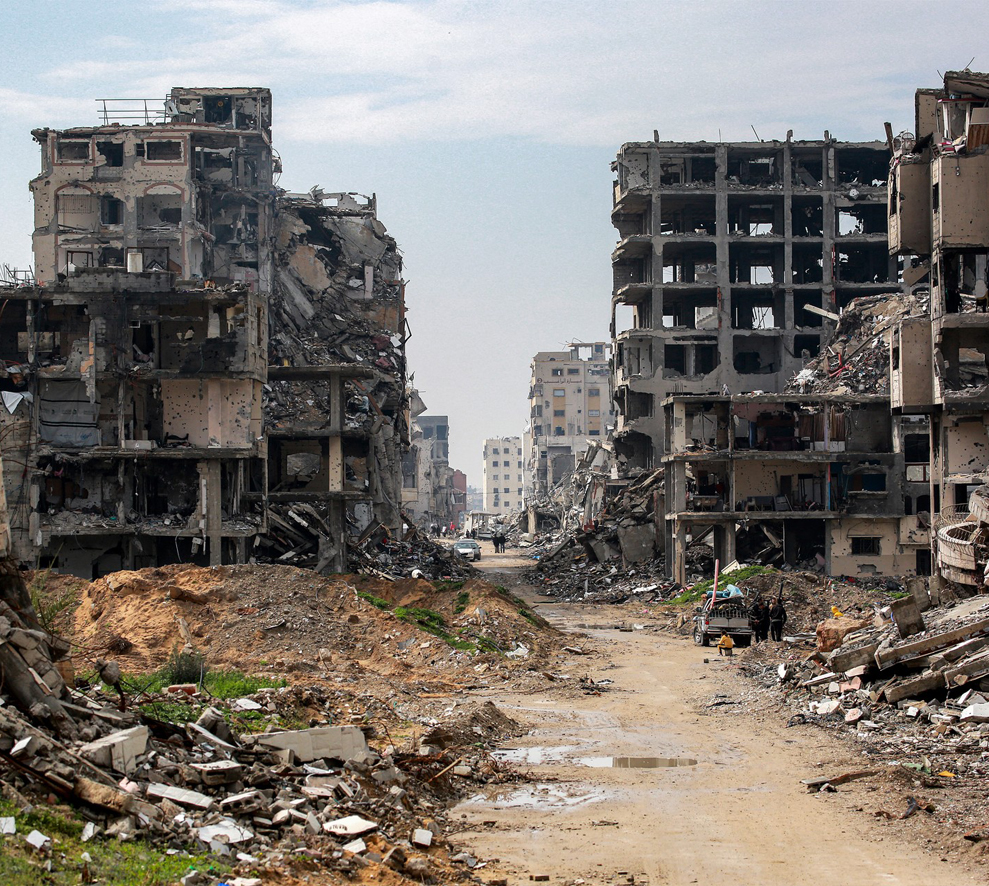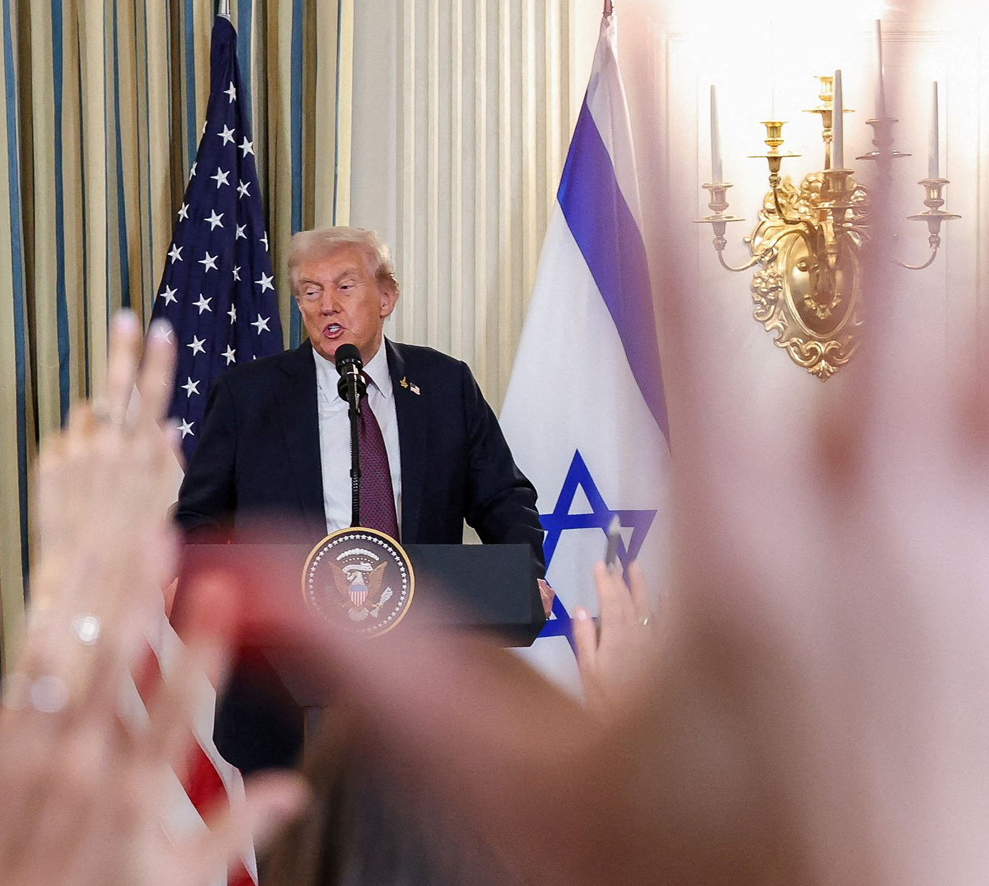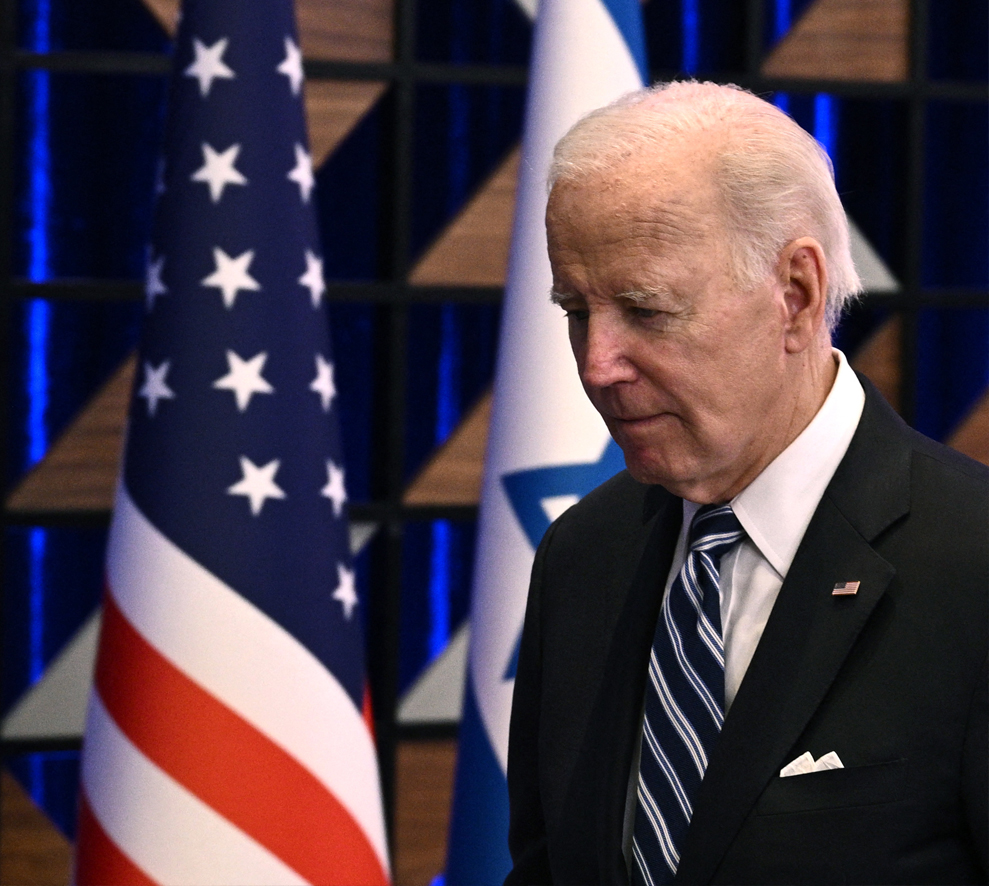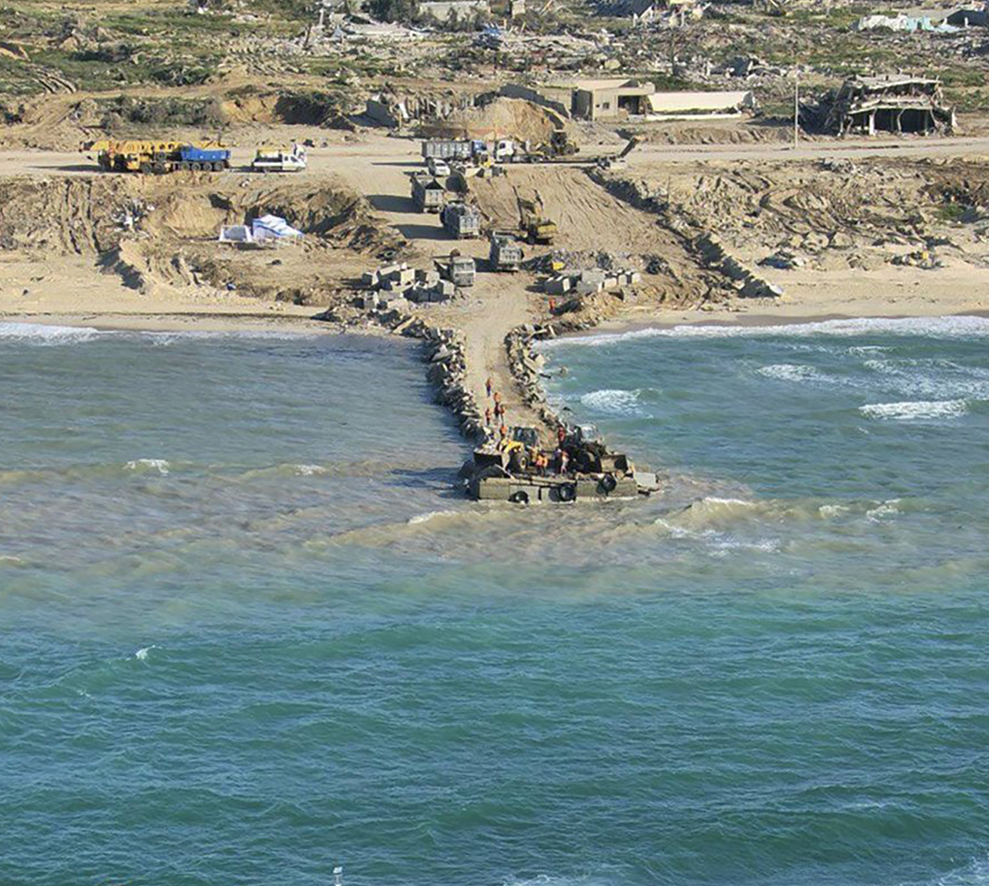Introduction
Hamas movement's attitude in Gaza Strip during the days that witnessed a state of military escalation between Israel and the Islamic Jihad movement, following Israel's assassination of Tayseer al-Jabari, a military leader in the Islamic Jihad movement, as well as a group of the movement's activists in the Gaza Strip raised many questions about this attitude that was characterized by diplomacy and refraining from military intervention of Izz al-Din al-Qassam Brigades, the military wing of Hamas.
The early features of Hamas's attitude appeared in the earliest moments following the assassination of al-Jabari in the delay of response on the part of the “joint operations room” of the armed Palestinian factions, despite the announcement of holding an immediate meeting by that room, which was explained by Hamas seeking to define a new equation for response, given that it holds power in Gaza Strip and constitutes the largest military force there.
Hamas' attitude has become increasingly evident after initiating response operations by the "Al-Quds Brigades", the military wing of the Islamic Jihad, as "Al-Qassam Brigades" did not participate at all in the response process whereby rockets have been fired from the Gaza Strip towards Israel. The participation was mainly limited to Al-Quds Brigades, with symbolic participation on the part of the armed groups affiliated with Fatah, the Popular Front and the Democratic Front. This continued until the ceasefire between Israel and the Jihad Movement entered into force on August 7, 2022; not to mention the movements and statements of Ismail Haniyeh, Head of Hamas' Political Bureau, in which he tried to come out for a "statesman" seeking to mobilize political and diplomatic efforts to stop the escalation, and condemn the Israeli aggression.
Hamas from "Resistance" to Power
In order to measure Hamas’s attitude on the escalation between Israel and Islamic Jihad Movement and the reasons behind its military nonintervention, it is essential to start from the determinants that affect Hamas policies in general, and in Gaza Strip in particular. Hamas, known for its pragmatic policies, has turned into a "political authority" controlling Gaza Strip, and this transformation is becoming more entrenched day by day in light of the exclusion of ending the internal Palestinian division and returning to the pre-2007 stage. However, it is a transformation that has come and is still interacting in the context of a range of turbulent events and state of instability at the level of internal conditions in Gaza, especially the economic ones, as in the relations with the Palestinian Authority in Ramallah and Israel, in addition to the complexity of Hamas’s alliances situation and its Arab and regional relations, which increases the challenges confronting Hamas in its quest to consolidate its political authority in Gaza and to play an influential Arab and regional role.
All this was reflected in the political behavior of Ismail Haniyeh during the days of escalation between Israel and the Islamic Jihad Movement, a behavior that is hardly different from the behavior of the Palestinian Authority leadership in Ramallah, where Haniyeh played the role of political “statesman” though he is the head of the political bureau of an armed “resistance” movement.
Indications for this are:
- Haniyeh's statements condemning Israel's assassination of Jabari, in which he said: "Contacts were made at regional and international levels. The occupation is solely responsible for the repercussions of its aggression against Gaza Strip" and he asserted that "He is following up the efforts to stop the Israeli aggression against Gaza Strip."
- Haniyeh receiving a phone call from Tor Wennesland, the United Nations Coordinator for the Middle East Peace Process, where they "discussed recent political and field developments, arrests carried out by the occupation, incursions, arrests, and settlements in the occupied West Bank, and the closure of crossing points in Gaza. Haniyeh has stressed the need for the occupation to stop its attacks on the Palestinian people as well as its settlement policy and breaking into the holy Aqsa Mosque, considering that these measures will clamp down on the Palestinian people and lead to the deterioration of the humanitarian situation in the West Bank and Gaza Strip” as stated on Hamas's official website.
- The phone call between Haniyeh and Mikhail Bogdanov, Deputy Russian Foreign Minister and the Special Envoy of Russian President in the Middle East and North Africa, where they "discussed the Zionist aggression on Gaza Strip and the need to stop it immediately, as well as the ongoing attacks against the holy Aqsa Mosque, and Haniyeh's review of the offences committed by the occupation against Palestinian citizens, whether assassinations or killing children, stressing the Palestinian people's resilience and adherence to their national rights" according to the Shehab News Agency affiliated with Hamas.
- Haniyeh's assertion during a telephone conversation with the Qatari Foreign Minister, Sheikh Mohammad bin Abdurrahman Al Thani, that "the offences of the occupation against Gaza are an expression of intentions the occupation conceals with flimsy excuses, and his emphasis on the need to stop the Israeli aggression and lift the hand of evil off the Strip" according to a statement by Hamas.
Direct causes
Based on the foregoing, it is possible to read the direct causes lying behind Hamas’s attitude towards the escalation between Israel and the Islamic Jihad Movement and the reasons behind its military non-intervention. These are motives that Hamas does not need to receive a direct message from Israel or Arab, regional and international parties for consideration, although this would not rule out the possibility of sending those messages by those parties to Hamas.
Here, it can be referred to the following direct causes:
First: Hamas’s inability to withstand severe Israeli strikes targeting Gaza Strip in general, and its infrastructure and political and military leaders in particular, and the mere assassination of Taysir al-Jabari by Israel carries with it a message to Hamas indicating that its leaders are not immune from such fate in case it decides to intervene militarily in the events.
Second: The difficult economic and social conditions in Gaza Strip, in which Hamas was able to achieve partial improvements through Israel’s agreement to grant work permits in Israel for thousands of workers from Gaza, and its promise to increase the number in the coming months, which was relatively reflected on the social life of Palestinian citizens in the Strip, so much so that some observers have noticed an unprecedented increase in the rate of sacrificial animals during Eid al-Adha this year. Israel's threat to suspend work permits is sufficient for Hamas to think carefully before taking the decision of military intervention in the events.
Third: The portfolios of the Qatari financial grant and the Qatari Committee for Reconstruction of Gaza Strip, which mainly contribute to solving the problem of salaries for “civilian and military” government personnel in Gaza Strip. They also contribute to the economic activity and reduce the burdens of Hamas's responsibility for poor families and social situations. In this context, a message from Israel or Qatar to Hamas to freeze or disrupt these files is sufficient for Hamas to take the position of military nonintervention.
Fourth: The file of “prisoner exchange” deal, which constitutes a great point of leverage for Hamas at the political, popular, and organizational levels. This file is managed in coordination with the Egyptian General Intelligence. It is sufficient to send a direct message from the Egyptian security leaders to Hamas, or an indirect one from Israel to postpone the negotiations on that file, or tightening the Israeli conditions for its implementation for Hamas to hold off a bit before taking the decision of military intervention in the events.
Fifth: Hamas's implied interest in curbing the Islamic Jihad Movement and limiting its escalating influence in Gaza Strip and the West Bank, as the Jihad Movement is the strongest political and military rival of Hamas, and both of them address the same audience with the same discourse. So, Israel's heavy blows to the Jihad Movement would weaken it on one hand, and strengthen Hamas's control over the military activities of the Islamic Jihad Movement as well as its control over those activities in the future on the other hand.
Sixth: Hamas's strive to enhance its Arab, regional and international political position by proving its ability to control the security situation in Gaza Strip, despite the sensitivity of the issue to the popular emotional mood. This strive was proven on the ground during the days of confrontation between Israel and the Islamic Jihad Movement, despite many emotive criticisms of Hamas's attitude.
Seventh: The possibility of receiving messages from “American and European” international parties warning Hamas against military intervention, in view of the fact that the Islamic Jihad Movement is linked to Iran and the need for Hamas to refrain from aligning with the Iranian axis in the region. Perhaps, this is supported by the range of Western "American and European" attitudes that rushed out to stand by Israel in its war against jihad and its assassination of Al-Jabari which came shortly after the United States announced its success in assassinating Ayman al-Zawahiri, the leader of "Al-Qaeda".
Conclusion
According to Hamas Movement's political calculations, attitudes are subject to a kind of pragmatic balance between the negatives and positives rather than the standards of principles, ideals and raised slogans. This is not unusual for a movement that is an extension of the Muslim Brotherhood in thought and practice; it is the group that established the jurisprudence of “priorities”, “balances” and “reality” in addition to other types of pragmatic jurisprudence.
Based on the scales of political profit and loss, Hamas's gains are more than its losses, while the scene will be completely reversed if Hamas take the decision of military participation, which might establish a new phase in Hamas’s political project, whose title is preparedness to engage in the political game as a major actor who has not only seriously exceeded the lines of resistance or “Terrorism”, but rather is ready to go further, by explicitly or implicitly contributing to control the armed groups and their reactions even in the event of direct attacks by Israel.
Keep in touch
In-depth analyses delivered weekly.

Related Analyses:







